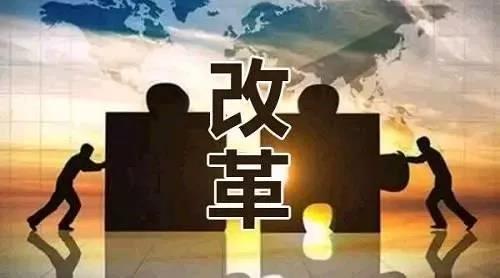Enterprise culture is a relatively fixed mode of thinking and behavior formed in the long-term management process of managers, while enterprise management needs to follow the trend, improve and perfect constantly in the changing internal and external environment, which will inevitably lead to the conflict between enterprise culture and enterprise management.

1. Transformation and upgrading of enterprises and change of management direction
If an enterprise wants to be invincible in the market competition, it must adapt to the changes of the market environment, constantly improve and change itself, and make the enterprise from small to large, from weak to strong. This development process will certainly lead to the inadaptability of enterprise culture and management.
For example, if the past production-oriented enterprise is transformed into a service-oriented enterprise, then the past production-oriented ideology and management mode must be changed, and the service-oriented enterprise culture must be gradually established, otherwise, it will be difficult for the enterprise to develop after the transformation.
For another example, in the past, it was a single small enterprise, gradually growing into a diversified large-scale enterprise. The management object has changed, and the management idea and mode will inevitably change. In particular, the management needs to seriously think about how to adjust the thinking of employees, from the past single model to the composite model; how to keep up with the enterprise system; how to reshape the image of the enterprise, and other issues. Only by adapting the construction of various elements of the enterprise culture to the enterprise management, can greater joint efforts be generated.

2. Changes of enterprise development brought by technological innovation
At this stage, with the continuous progress of society and the rapid development of science and technology, new products and management methods may appear every day. If we still stick to the rules and manage step by step, we will be eliminated by the society. For example, Taobao and other platforms have brought new marketing models; JD's robot distribution model; Foxconn's automatic production line has changed the profit model of low labor cost in the past; China Construction Bank's unmanned bank in Shanghai has opened.
The emergence of these new things will inevitably lead to changes in business management mode, means and methods. The corporate culture formed in the past will become old and backward culture, which will naturally lead to management conflicts.

3. Corporate culture and social development present new ideas
Diversified social development will lead to diversified ideas. If we still stay in the past mode of corporate culture formation and do not innovate, it will inevitably conflict with the new management mode. For example, selfless dedication, no pay, overtime work and so on, these state-owned enterprises in the past were regarded as excellent corporate culture, which was far from adapting to the current situation, and even some of them violated the current laws and regulations, so they must give a new meaning to corporate culture; the spirit of hard struggle in the material life is very rich today, no longer need to eat, wear and work The spirit of doing should not be waste, luxury, and conditionalism. If we blindly use the past corporate culture connotation to influence the present employees, it will be counterproductive. Therefore, we must continue to innovate and give new connotation to the corporate culture to meet the needs of enterprise management.

4. Reform, merger and reorganization of enterprises
As the unique culture of the enterprise's own attributes, corporate culture is deeply rooted in the hearts of the employees of the enterprise and plays a subtle role. The reform, merger and reorganization of an enterprise will break a relatively stable corporate culture pattern, and the culture of one enterprise will permeate and erode the culture of another enterprise. For example, work values, business philosophy, attitudes towards people and things will affect each other, and will also lead to management conflicts. In order to maintain the stability of the enterprise, the merged enterprise and the merged enterprise will reach a new balance in the management running in, form a new corporate culture, reduce the conflict between corporate culture and management, and reduce the damage to the development of the enterprise.
5. Change of managers
Corporate culture is more about the culture of managers and "top leaders". Since every manager has his own unique way of doing things and habits, especially the voice and decision-making power of the "top leader" of the enterprise is much greater than other managers, it is impossible for him to manage the same enterprise in accordance with the thoughts and ideas of previous leaders. The change of managers will lead to the change of enterprise management. If the enterprise's responsible leadership grows up in this enterprise and is influenced by the original enterprise culture, the contradiction and conflict between the two will be much smaller; if it is sent from the outside, the maladjustment between the two will be larger, so the frequent change of managers is not conducive to the healthy, sustainable and stable development of the enterprise.
Main products: low temperature hot melt glue harbor treasure, hot melt glue harbor treasure, low temperature harbor treasure, water-soluble harbor treasure, hot press set cloth, cotton cloth hot melt glue harbor treasure, shoes harbor treasure, hot melt glue
Tel: 086-769-85825193 / 136 0235 1797